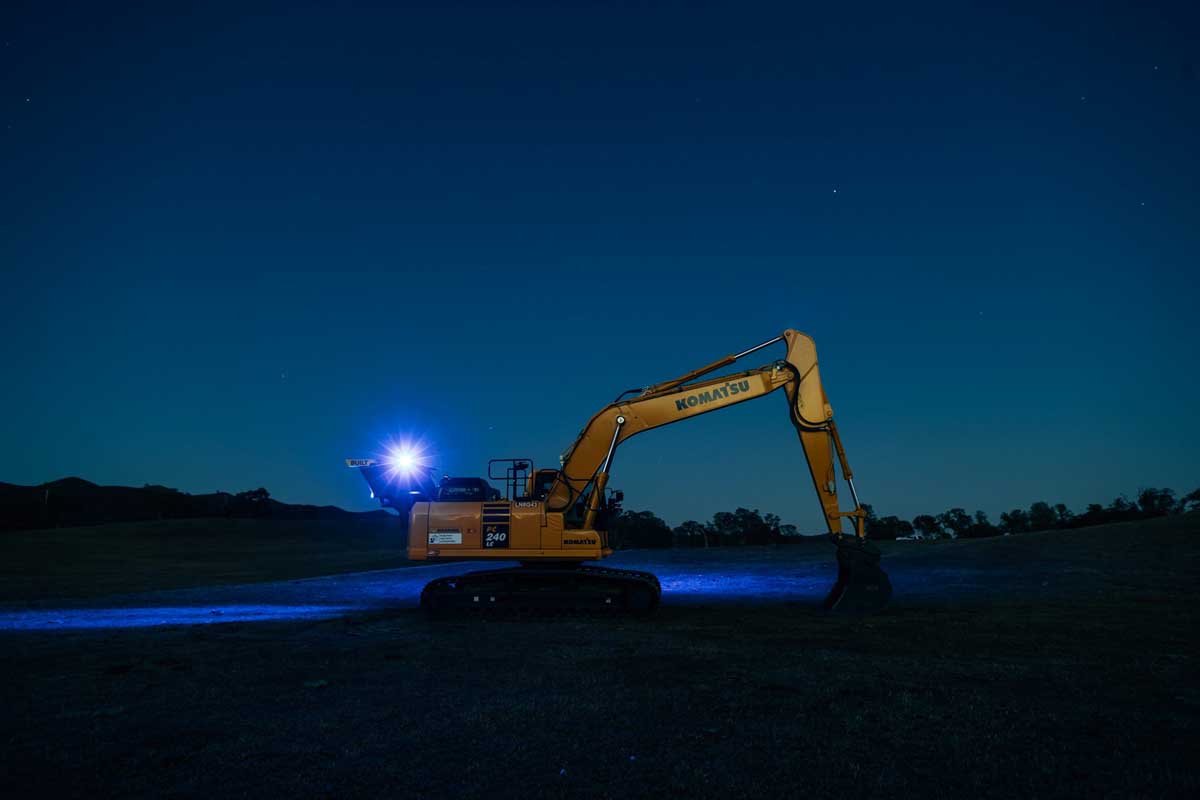Introduction
Unlock the secrets to mastering different types of digging machines and launching a successful business! From powerful excavators to versatile trenchers, discover the essentials of various digging machines, their unique features, and practical business insights. Dive in for a quick, engaging guide to your digging machine journey.
Types of Digging Machines:
Excavators:
- Approximate Cost: $100,000 to $500,000
- Unique Features: Tracks for stability on rough terrain, large buckets for heavy digging.
- Availability: Widely available from major manufacturers like Caterpillar, Komatsu, and Hitachi.
- Pros: Excellent stability, powerful digging force, versatile attachments.
- Cons: High fuel consumption, large size can be cumbersome in tight spaces.
- Work Purpose: General excavation, trenching, lifting, and material handling in construction and mining.
- Digging Ability: Deep digging, strong hydraulic power for heavy soil and rock. Depth can range from 10 to 30 feet or more.
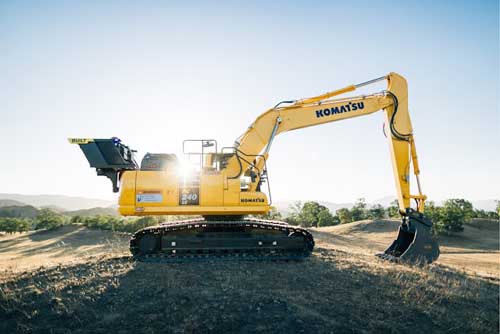
Wheeled Excavators:
- Approximate Cost: $150,000 to $300,000
- Unique Features: Wheels for better maneuverability on paved surfaces.
- Availability: Widely available from manufacturers like Volvo, Liebherr, and Doosan.
- Pros: Better mobility on roads, faster travel speed.
- Cons: Less stable on uneven terrain, generally less powerful than tracked excavators.
- Work Purpose: Urban construction, roadwork, and tasks requiring mobility.
- Digging Ability: Moderate digging depth, typically up to 15-20 feet, with efficient operation on flat surfaces.
Mini Excavators:
- Approximate Cost: $30,000 to $100,000
- Unique Features: Compact size, reduced tail swing.
- Availability: Widely available from manufacturers like Bobcat, Kubota, and John Deere.
- Pros: Ideal for tight spaces, lower operating costs.
- Cons: Limited digging depth and power, smaller bucket capacity.
- Work Purpose: Small-scale construction, landscaping, and utility work in confined spaces.
- Digging Ability: Shallow to moderate digging, usually up to 10 feet.
Backhoe Loaders:
- Approximate Cost: $50,000 to $150,000
- Unique Features: Combination of loader and backhoe, versatile.
- Availability: Widely available from manufacturers like JCB, Caterpillar, and John Deere.
- Pros: Versatile, good for small to medium jobs, can drive on roads.
- Cons: Limited digging depth compared to larger excavators, not ideal for large-scale projects.
- Work Purpose: Versatile machine used for digging, trenching, backfilling, and loading.
- Digging Ability: Moderate digging depth, typically up to 14 feet. Suitable for light to medium digging tasks.
Trenchers:
Chain Trenchers
- Approximate Cost: $10,000 to $150,000
- Unique Features: Chain mechanism for cutting through soil and rock.
- Availability: Available from manufacturers like Vermeer, Ditch Witch, and Tesmec.
- Pros: Effective for digging narrow trenches, various sizes available.
- Cons: High maintenance costs, limited to trenching applications.
- Work Purpose: Digging narrow trenches for pipes, cables, and drainage.
- Digging Ability: Depth can range from 3 to 10 feet, depending on the model. Suitable for precise trenching.
Wheel Trenchers
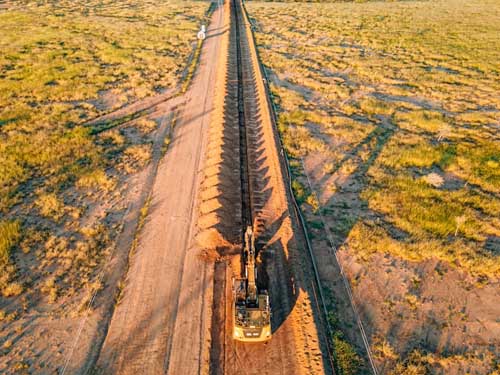
- Approximate Cost: $50,000 to $300,000
- Unique Features: Large toothed wheel for trenching.
- Availability: Available from manufacturers like Trencor, Vermeer, and Ditch Witch.
- Pros: Efficient for deep and wide trenches, good for rocky soil.
- Cons: High initial cost, limited versatility.
- Work Purpose: Cutting through hard soil and rock to create trenches for utilities.
- Digging Ability: Deeper trenches, typically up to 10 feet or more, with widths varying by model.
Bulldozers:
Crawler Bulldozers
- Approximate Cost: $100,000 to $1,000,000
- Unique Features: Tracks for stability, powerful pushing force.
- Availability: Widely available from manufacturers like Caterpillar, Komatsu, and John Deere.
- Pros: Excellent for pushing large amounts of material, stable on rough terrain.
- Cons: High fuel consumption, large and heavy.
- Work Purpose: Pushing large quantities of soil, sand, or rubble, land clearing, and grading.
- Digging Ability: Limited digging ability, primarily used for pushing and leveling.
Wheeled Bulldozers
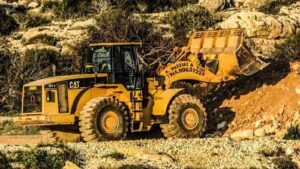
- Approximate Cost: $200,000 to $600,000
- Unique Features: Wheels for better maneuverability on paved surfaces.
- Availability: Less common, available from manufacturers like Caterpillar.
- Pros: Better mobility, faster travel speed.
- Cons: Less stability on uneven terrain, generally less powerful than tracked bulldozers.
- Work Purpose: Similar to crawler bulldozers but with better mobility on paved surfaces.
- Digging Ability: Limited digging ability, mainly for pushing and leveling.
Skid Steer Loaders
Standard Skid Steers
- Approximate Cost: $20,000 to $70,000
- Unique Features: Compact size, versatile attachments.
- Availability: Widely available from manufacturers like Bobcat, Caterpillar, and John Deere.
- Pros: Highly versatile, easy to operate, compact.
- Cons: Limited lifting capacity, not ideal for heavy digging.
- Work Purpose: Light excavation, material handling, landscaping, and demolition.
- Digging Ability: Shallow digging, typically up to 6 feet. Ideal for small projects.
Compact Track Loaders
- Approximate Cost: $30,000 to $100,000
- Unique Features: Tracks instead of wheels for better traction.
- Availability: Widely available from manufacturers like Bobcat, Caterpillar, and John Deere.
- Pros: Better traction on soft or uneven surfaces, versatile.
- Cons: Higher maintenance costs for tracks, higher initial cost.
- Work Purpose: Similar to skid steers but with better traction on soft or uneven surfaces.
- Digging Ability: Shallow digging, typically up to 6 feet.
Graders:
Motor Graders
- Approximate Cost: $200,000 to $500,000
- Unique Features: Long blade for fine grading.
- Availability: Widely available from manufacturers like Caterpillar, John Deere, and Volvo.
- Pros: Excellent for fine grading and shaping surfaces, precise control.
- Cons: High initial cost, specialized use.
- Work Purpose: Fine grading, shaping surfaces, and creating smooth roads.
- Digging Ability: Limited digging ability, primarily used for grading and leveling.
Drilling Machines
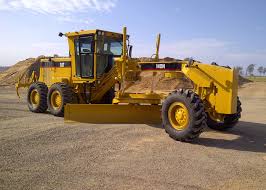
Rotary Drilling Rigs
- Approximate Cost: $100,000 to $1,000,000+
- Unique Features: Rotary drill bit for large holes.
- Availability: Available from manufacturers like Bauer, Liebherr, and Soilmec.
- Pros: Capable of drilling large and deep holes, powerful.
- Cons: High cost, complex operation.
- Work Purpose: Drilling large and deep holes for foundations, oil and gas exploration, and geothermal wells.
- Digging Ability: Can drill holes up to several thousand feet deep, depending on the rig and application.
Percussion Drilling Rigs
- Approximate Cost: $50,000 to $300,000
- Unique Features: Hammering action for drilling.
- Availability: Available from manufacturers like Atlas Copco, Sandvik, and Furukawa.
- Pros: Effective in hard rock, faster drilling in certain conditions.
- Cons: High wear on equipment, noisy operation.
- Work Purpose: Drilling in hard rock formations for mining and construction.
- Digging Ability: Depth can range from a few hundred to several thousand feet, depending on the rig.
Hydraulic Shovels
- Approximate Cost: $500,000 to $2,000,000+
- Unique Features: Large bucket for heavy digging.
- Availability: Available from manufacturers like Caterpillar, Komatsu, and Hitachi.
- Pros: Extremely powerful, ideal for large-scale mining and construction.
- Cons: Very high cost, large size.
- Work Purpose: Heavy excavation in mining and large construction projects.
- Digging Ability: Deep and powerful digging, typically up to 30 feet or more.
Dragline Excavators
- Approximate Cost: $50,000,000 to $100,000,000+
- Unique Features: Large boom and bucket for extensive digging.
- Availability: Specialized equipment, available from manufacturers like Bucyrus and Caterpillar.
- Pros: Capable of moving vast amounts of material, used in large mining operations.
- Cons: Extremely high cost, requires significant infrastructure.
- Work Purpose: Large-scale excavation in mining and civil engineering.
- Digging Ability: Extremely deep digging, often used for removing overburden in mining. Depths can exceed 100 feet.
Scrapers:
Open Bowl Scrapers
- Approximate Cost: $100,000 to $800,000
- Unique Features: Bowl for loading and transporting soil.
- Availability: Available from manufacturers like Caterpillar and John Deere.
- Pros: Efficient for medium distances, high capacity.
- Cons: Limited versatility, high operating costs.
- Work Purpose: Moving large quantities of earth over medium distances in construction and mining.
- Digging Ability: Shallow to moderate digging, typically up to 10 feet.
Elevating Scrapers
- Approximate Cost: $200,000 to $600,000
- Unique Features: Elevator for loading the soil into the bowl.
- Availability: Available from manufacturers like Caterpillar.
- Pros: Efficient loading, good for various soil types.
- Cons: High initial cost, specialized use.
- Work Purpose: Similar to open bowl scrapers, with an elevator for efficient loading.
- Digging Ability: Shallow to moderate digging, typically up to 10 feet.
Bucket Wheel Excavators
- Approximate Cost: $100,000,000+
- Unique Features: Continuous digging with a rotating wheel.
- Availability: Specialized equipment, available from manufacturers like ThyssenKrupp and Sandvik.
- Pros: Extremely efficient for continuous mining operations.
- Cons: Extremely high cost, very large and complex.
- Work Purpose: Continuous digging in large-scale mining operations.
- Digging Ability: Can dig several feet per pass, with the ability to remove vast amounts of overburden and ore.
Auger Drills:
Earth Augers
- Approximate Cost: $1,000 to $20,000
- Unique Features: Spiral drill for holes.
- Availability: Widely available from various manufacturers.
- Pros: Affordable, easy to use.
- Cons: Limited to drilling small holes, not suitable for heavy-duty work.
- Work Purpose: Drilling holes for poles, posts, and planting.
- Digging Ability: Shallow drilling, typically up to 6 feet deep.
Each of these machines is designed for specific tasks and environments, providing a range of options for different construction and mining needs.
FAQs on Different Types of Digging Machines:
What types of projects require digging machines?
- Answer: Digging machines are used in a wide range of projects, including construction (building foundations, roads, and infrastructure), mining (extracting minerals and ores), landscaping (excavating for gardens, ponds, and retaining walls), utility installation (laying pipes, cables, and drainage systems), and demolition (removing debris and old structures).
What factors should I consider when choosing types of digging machine?
- Answer: Key factors to consider include the type of soil or material being excavated, the size and depth of the digging required, the machine’s power and hydraulic capabilities, the terrain and site conditions, maneuverability and access constraints, and the specific attachments or accessories needed for the job.
How do I maintain a digging machine?
- Answer: Regular maintenance includes checking and changing fluids (oil, hydraulic fluid, coolant), inspecting and replacing filters, examining and lubricating moving parts, checking tracks or tires for wear and tear, ensuring the electrical and control systems are functioning correctly, and conducting regular inspections and servicing as per the manufacturer’s guidelines.
What are the safety considerations when operating digging machines?
- Answer: Safety considerations include proper training for operators, wearing appropriate personal protective equipment (PPE), following all operating instructions and safety protocols, conducting pre-operation inspections, maintaining a clear and safe work area, being aware of underground utilities, and using proper signaling and communication methods on-site.
FAQs on Digging Machine Business
How do I start a digging machine rental business?
- Answer: Starting a rental business involves researching the market demand, choosing the right types of digging machines to offer, securing financing or capital, acquiring the necessary equipment, setting competitive rental rates, obtaining the necessary licenses and insurance, developing a marketing strategy, and establishing maintenance and customer service protocols.
What are the costs involved in purchasing and maintaining digging machines?
- Answer: Costs include the initial purchase price (ranging from tens of thousands to millions of dollars depending on the machine type), financing or leasing expenses, regular maintenance and servicing costs, insurance, operator training, fuel, and any necessary attachments or accessories.
How can I finance the purchase of a digging machine?
- Answer: Financing options include taking out a business loan, leasing the equipment, seeking investment from partners or investors, utilizing manufacturer financing programs, or using lines of credit. It’s essential to compare terms and interest rates and consider the long-term financial impact of each option.
What is the expected lifespan of a digging machine?
- Answer: The lifespan of a digging machine depends on the type of machine, its usage, and maintenance. Generally, well-maintained machines can last from 10 to 20 years or more. Regular servicing, proper operation, and timely repairs can extend the machine’s operational life.
How do I determine the rental rates for my digging machines?
- Answer: Rental rates are determined by factors such as the machine’s purchase price, depreciation, maintenance costs, market demand, competition, and the duration of the rental period. Conducting market research to understand local rates and adjusting for your costs and desired profit margin is crucial.
What are the key trends in the digging machine industry?
- Answer: Key trends include the increasing use of advanced technologies like GPS and telematics for precision and efficiency, the shift towards more environmentally friendly and fuel-efficient machines, the growth of the rental market, and the development of more compact and versatile machines for urban and confined-space applications.
How can I differentiate my digging machine business from competitors?
- Answer: Differentiation can be achieved by offering exceptional customer service, maintaining a well-serviced and reliable fleet, providing flexible rental terms, offering specialized attachments and accessories, implementing advanced technology for better machine performance, and building a strong reputation through positive customer reviews and word-of-mouth referrals.
What insurance do I need for my digging machine business?
- Answer: Essential insurance types include general liability insurance, property insurance for the equipment, workers’ compensation insurance for employees, commercial auto insurance for transporting machines, and business interruption insurance. Consulting with an insurance provider to tailor coverage to your specific needs is advisable.
These FAQs cover fundamental aspects of digging machines and the business of renting or owning them, providing a solid foundation for anyone interested in this field.

